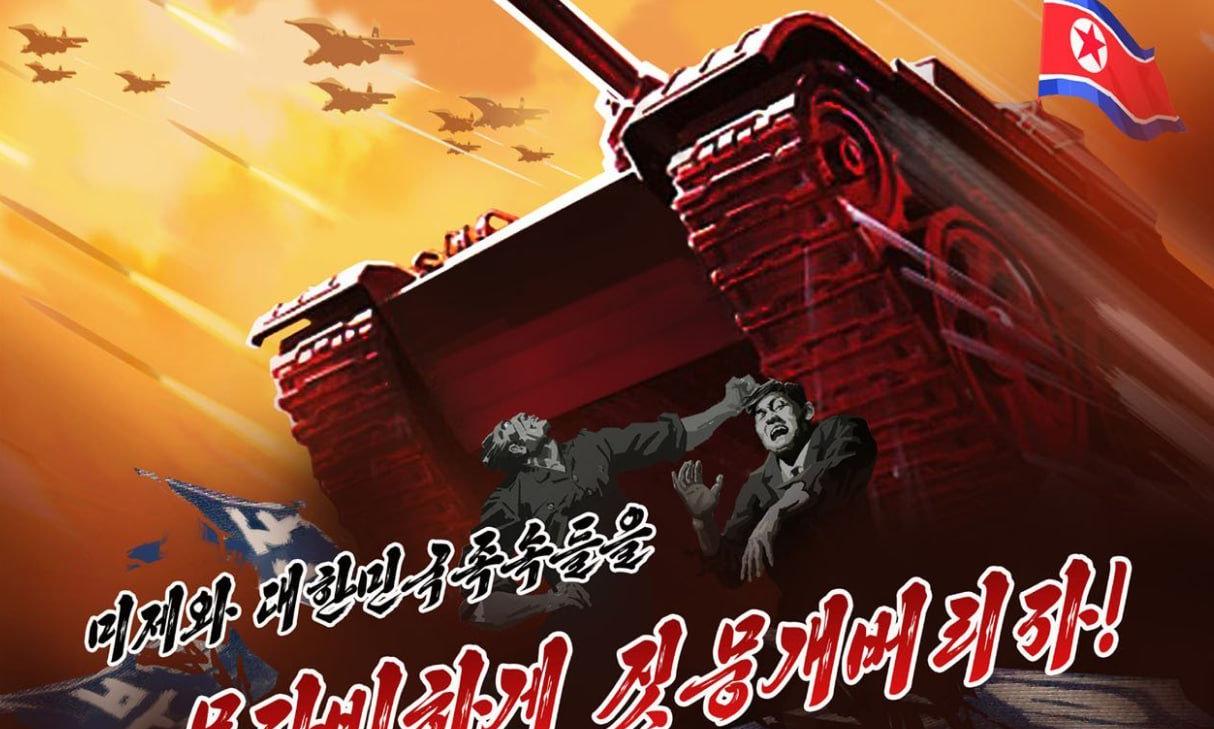
North Korea unveils posters depicting tanks crushing South Koreans
text_fieldsPyongyang: North Korea has recently unveiled a series of new public posters depicting heavy tanks crushing both Americans and South Koreans, according to a report from NK News.
The posters explicitly encourage the public to "destroy" these perceived enemies, following North Korean leader Kim Jong Un's recent speech where he declared South Korea as his country's "principal enemy" and emphasised preparations for war.
One poster prominently features a large tank rolling over South Koreans with the text, "Let us destroy the U.S. imperialists and the clan of the Republic of Korea without mercy!"
The image also includes jets flying overhead. Notably, this poster bears a striking resemblance to previous versions produced in earlier years. For instance, a 2017 version showcased a tank in a similar position, but the words "economic development" and "nuclear weapon development" were replaced with "sanctions" and "pressure."
Additional historical examples include a poster from the period between 2008 and 2013, illustrating a tank smashing a caricature of South Korean President Lee Myung-bak and an American soldier, accompanied by jets and missiles flying overhead.
In the previous year, North Korea revealed new posters featuring nuclear missiles smashing the U.S. mainland and a representation of a man from South Korea being stabbed with bayonets, possibly symbolising current President Yoon Suk-yeo.
NK News reports that posters commemorating the development of nuclear-armed intercontinental ballistic missiles, primarily targeted at the United States, have been displayed nationwide over the past year along streets and at factories.
Meanwhile, Kim Jong Un has recently called for a constitutional amendment to alter South Korea's status as a separate state, warning that while North Korea doesn't seek war, it has no intention of avoiding it. Tensions in the Korean Peninsula have escalated due to a series of missile tests and Pyongyang's efforts to change its approach towards South Korea.























